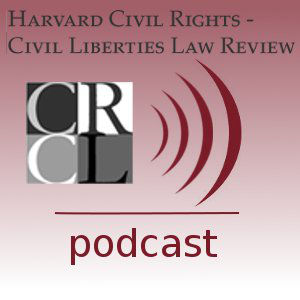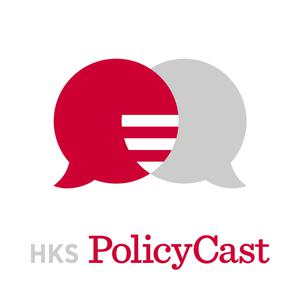
Women and Public Policy Program Seminar Series
Women and Public Policy Program, Harvard Kennedy School
Closing gender gaps across the world
- 1 hour 11 minutesOrganizing for the US Equal Rights Amendment: Strategic Strengths and Failures
Organizing for the Equal Rights Amendment the first time round, in 1972-82, tapped the strengths and experienced the weaknesses of social movements in general. The strengths of social movements derive from their “hydra-headed” qualities: the activists bubble up from many different arenas, giving the movement great flexibility, adaptability, diversity, and intelligence. The weaknesses derive from their relative absence of selective incentives, so that the motivation for activism is primarily ideological commitment. That commitment in turn, creates a “dynamic of deafness,” in which activists are unlikely to listen and learn from their opposition. In this seminar, Jane Mansbridge discusses how the current organizing effort has learned in different ways from the past.
Jane Mansbridge, Adams Professor of Political Leadership and Democratic Values, Harvard Kennedy School
29 April 2019, 6:01 pm - 1 hour 12 minutesShifting Policy, Workplace Norms and Culture to End Workplace Sexual Violence
Millions of people disclosed sexual harassment and violence against them following the #MeToo breakthrough in October 2017. Despite the fact that advocates, individuals and the government had been taking action to address sexual harassment, it remains a widespread problem that prevents employees from reaching their full potential. Monica Ramirez, a national recognized expert on ending workplace sexual violence and the author of the Dear Sisters letter that helped spark the TIMES UP movement, will discuss the policy measures, as well as the employment and societal norms that must be addressed to meaningfully address this problem.
Monica Ramirez, MC/MPA 2015, Co-Founder and President, Alianza Nacional de Campesinas
29 April 2019, 5:59 pm - 1 hour 24 minutesHKS Gender and Security Seminar Series: LGBT Ex-Combatants in Colombia
Join us for an HKS Gender and Security Seminar Series event featuring Theresia Thylin, PhD Candidate in the Essex University (UK) Department of Sociology and a Gender and Humanitarian Specialist at the United Nations Entity for Gender Equality and the Empowerment of Women (UN Women) in New York. Chelsea Green, PhD candidate in the Harvard Department of Government, will serve as a discussant. This event is organized by Dara Kay Cohen, Ford Foundation Associate Professor of Public Policy, and Zoe Marks, Lecturer in Public Policy.
29 April 2019, 5:56 pm - 1 hour 13 minutesDo Sexual Harassment Programs Make Workplaces More Hospitable to Women?
Do corporate sexual harassment programs reduce harassment? If they do, new programs should boost the share of women in management because harassment causes women to quit. Sexual harassment grievance procedures incite retaliation, according to surveys, and our analyses show that they are followed by reductions in women managers. Sexual harassment training for managers, which treats managers as victims’ allies and gives them tools to intervene, are followed by increases in women managers. Training for employees, which treats trainees as suspects, can backfire. In this seminar, Frank Dobbin discusses how programs work better in workplaces with more women managers, who are less likely than men to respond negatively to harassment complaints and training. Politicians and managers should be using social-scientific evidence to design harassment programs.
Frank Dobbin, Harvard University, Department of Sociology
29 April 2019, 5:46 pm - 1 hour 15 minutesUnintended Consequences of Diversity Initiatives: Types, Causes, and Interventions
The purpose of diversity initiatives is to help groups that face disadvantage in society (e.g., women, racial/ethnic minorities, etc.) achieve better outcomes in organizations, but they do not necessarily work as intended. In this seminar, Lisa Leslie first presents a typology of four unintended consequence types—backfire, negative spillover, positive spillover, and false progress—as well as theory regarding the underlying mechanisms and processes that produce them. She next provides empirical examples illustrating the different unintended consequence types. She concludes by using the typological theory to derive potential interventions aimed at increasing diversity initiative effectiveness.
Lisa Leslie, Associate Professor of Management and Organizations, New York University
9 April 2019, 3:11 pm - 1 hour 13 minutesBabies, Work, or Both? Highly-Educated Women’s Employment and Fertility in East Asia with Mary Brinton
Only two OECD countries continue to exhibit an M-shaped curve of female labor force participation across the life cycle: Japan and South Korea. In this seminar, Mary Brinton analyzes how labor market structure and workplace norms influence this pattern. Her analysis draws on data from over 160 in-depth interviews with highly-educated Japanese and Korean men and women of childbearing age, and demonstrates how working conditions exert a powerful influence on gendered patterns of behavior at home and in the labor market.
Mary Brinton, Reischauer Institute Professor of Sociology, Harvard University
22 March 2019, 8:04 pm - 1 hour 10 minutesWhat Works: Designing an Inclusive Workplace with Iris Bohnet
Gender equality is a moral and a business imperative. But unconscious bias holds us back, and de-biasing people’s minds has proven to be difficult and expensive. Diversity training programs have had limited success, and individual effort alone often invites backlash. Behavioral design offers a new solution. By de-biasing organizations instead of individuals, we can make smart changes that have big impacts. Presenting research-based solutions, Iris Bohnet hands us the tools we need to move the needle in classrooms and boardrooms, in hiring and promotion, benefiting businesses, governments, and the lives of millions.
Iris Bohnet, Albert Pratt Professor of Business and Government; Academic Dean, Harvard Kennedy School; Co-Director, WAPPP
15 March 2019, 9:13 pm - 1 hour 12 minutesThey, Them, and Theirs: Including Nonbinary Gender Identities in Law and Policy with Jessica Clarke
Nonbinary gender identities have quickly gone from obscurity to prominence in American public life, with growing acceptance of gender-neutral pronouns, such as “they, them, and theirs,” and recognition of a third-gender category by U.S. states including California, Colorado, Minnesota, New Jersey, Oregon, and Washington. People with nonbinary gender identities do not exclusively identify as men or women. The increased visibility of a nonbinary minority creates challenges for other rights movements, while also opening new avenues for feminist and LGBT advocacy. In this seminar, Jessica Clarke asks what law and policy would look like if they took nonbinary gender seriously. She assesses the legal interests in binary gender regulation in areas including law enforcement, employment, education, housing, and health care, and concludes these interests are not reasons to reject the broader project of nonbinary inclusion.
Jessica Clarke, Professor of Law, Vanderbilt Law School
1 March 2019, 8:37 pm - 40 minutes 50 secondsHKS Gender and Security Seminar Series -- Transgender Military Service: What's at Stake in the Debate?
This HKS Gender and Security Seminar Series event features Aaron Belkin, Professor of Political Science at San Francisco State University and author of How We Won: Progressive Lessons from the Repeal of 'Don't Ask, Don't Tell.' Juliette Kayyem, Belfer Lecturer in International Security, HKS, moderates the discussion. The HKS Gender and Security Seminar Series brings leading experts from academia and the policy world, working at the intersection of gender, human rights, and security, to Harvard Kennedy School. The spring 2019 series focuses on the theme of “LGBT in War,” featuring speakers from the academic and policy worlds addressing LGBT issues in national militaries, non-state armed groups and the experiences of LGBT victims of war.
Aaron Belkin, Professor of Political Science at San Francisco State University
Juliette Kayyem, Belfer Lecturer in International Security, Harvard Kennedy School
26 February 2019, 8:48 pm - 1 hour 13 minutesGlobal Colorism with Trina Jones
Scholars have widely discussed colorism – the differential treatment of same-race individuals based on skin color – with regard to the African-American community. They have less frequently examined colorism’s worldwide dimensions. Yet, the manufacture of products offering the prospect of lighter, brighter, whiter skin is a multi-billion dollar global industry, with Asia being a key market. Importantly, the salience accorded skin color varies depending upon geographical location and social context. In this seminar, Professor Jones will discuss: (1) the ways in which skin color operates within different racialized communities, with a specific focus on African Americans, Asians, and Asian Americans; and (2) how skin tone differences influence perceptions of individual and group identity and complicate coalition building within and across racial groups.
Trina Jones, Jerome M. Culp Professor of Law, Duke University School of Law
22 February 2019, 12:00 pm - 1 hour 15 minutesWhy Women Mobilize: Dissecting and Dismantling India’s Political Gender Gap with Soledad Prillaman
In India, there persists a striking gender gap in political participation and representation. This political gender gap persists despite decades of democracy and universal adult suffrage, rapid economic development, and large-scale policies aimed at women's political empowerment. Women's political participation is important not only on normative grounds of inclusion, but because research shows that when women do participate, politics changes. Presenting findings from her book project, Soledad Prillaman evaluates the importance of social networks for women's political empowerment and documents how women who have become active political agents are received and resisted by traditional political networks.
Soledad Prillaman, Postdoctoral Fellow, Nuffield College, Oxford University
23 January 2019, 9:35 pm - More Episodes? Get the App
Your feedback is valuable to us. Should you encounter any bugs, glitches, lack of functionality or other problems, please email us on [email protected] or join Moon.FM Telegram Group where you can talk directly to the dev team who are happy to answer any queries.
 Leading Questions
Leading Questions
 Harvard Center for International Development
Harvard Center for International Development
 New Books in Public Policy
New Books in Public Policy
 Harvard Civil Rights-Civil Liberties Podcast
Harvard Civil Rights-Civil Liberties Podcast
 PolicyCast
PolicyCast
 Shorenstein Center Media and Politics Podcast
Shorenstein Center Media and Politics Podcast